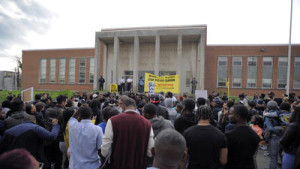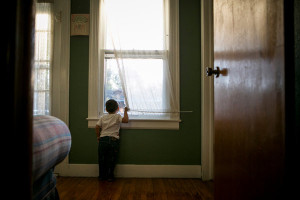Your daily ration of civil justice rationing
Obama’s ‘Clean Plants’ Order Headed For Fast Supreme Court Decision
Gas-Fire Victim’s Mom Will Address Lubbock On Safety Proposal Progress
The city council agenda in Lubbock, Texas says that Becky Teel “… with the Brennen Teel Foundation will appear before the City Council to discuss Corrugated Stainless Steel Tubing (CSST) and the purpose of the foundation,” but that’s not exactly right. People with knowledge of her planned comments say she’ll actually be there “as a mom” and not representing the foundation. Either way, she’s likely wondering why recommendations for a higher standard of flexible natural gas pipe have not made their way to the council yet.
Courts Monitor Publisher Sara Warner has written in her Huffington Post blog that Lubbock, perhaps best known as the home of Buddy Holly even if some Mac Davis country music fans might disagree, has emerged as the cutting edge in a controversy over a type of flexible pipe that brings natural gas into millions of American homes. Called CSST, for corrogated stainless steel tubing, some forms of the pipe have been implicated in hundreds and perhaps thousands of lightening-strike home fires. Officials say just such a fire killed Becky Teel’s son, Breennen, in 2012.
Lubbock made headlines when it temporarily banned CSST altogether in the wake of the fires. Then a special city safety committee reportedly recommended moving to the safest of several versions of the tumbling, but the city has not taken up the issue. In her reporting, Ms. Warner has noted that the case could have national implications because one community going to the higher requirements might cause others to do likewise. She also notes that the entire debate is being forced not by government regulators or consumer groups but by research and results of civil litigation.
Sara Warner’s HuffPo piece is here: Buddy Holly’s Hometown Unlikely Pioneer With Lightning and ‘CSST’ Fuel Gas Solution.
Seeking Safety, Young Migrants Find Abuse At Hands Of U.S. Placement
The Associated Press is releasing a Los Angeles-based investigative report that pretty much indicts the entire U.S. government effort to deal with those unaccompanied kids seeking a sanctuary in the United States. The tale of epic fail begins “… as tens of thousands of children fleeing violence in Central America crossed the border in search of safe harbor, overwhelmed U.S. officials weakened child protection policies, placing some young migrants in homes where they were sexually assaulted, starved, or forced to work for little or no pay, an Associated Press investigation has found.”
Responding to public pressure, the U.S. simply cut some corners. The AP notes that “… first, the government stopped fingerprinting most adults seeking to claim the children. In April 2014, the agency stopped requiring original copies of birth certificates to prove most sponsors’ identities. The next month, it decided not to complete forms that request sponsors’ personal and identifying information before sending many of the children to sponsors’ homes. Then, it eliminated FBI criminal history checks for many sponsors.”
The AP found dozens of children who were placed in abusive situations and reports that “Sen. Rob Portman, R-Ohio, who chairs the Senate’s bipartisan Permanent Subcommittee on Investigations, said he will hold a hearing on the agency’s child placement program Thursday because he is concerned that the failures are systemic.”
Read the AP story here: http://bigstory.ap.org/article/e87200e7361b412fa8c1d5003b7bf357/ap-investigation-feds-failures-imperil-migrant-children




